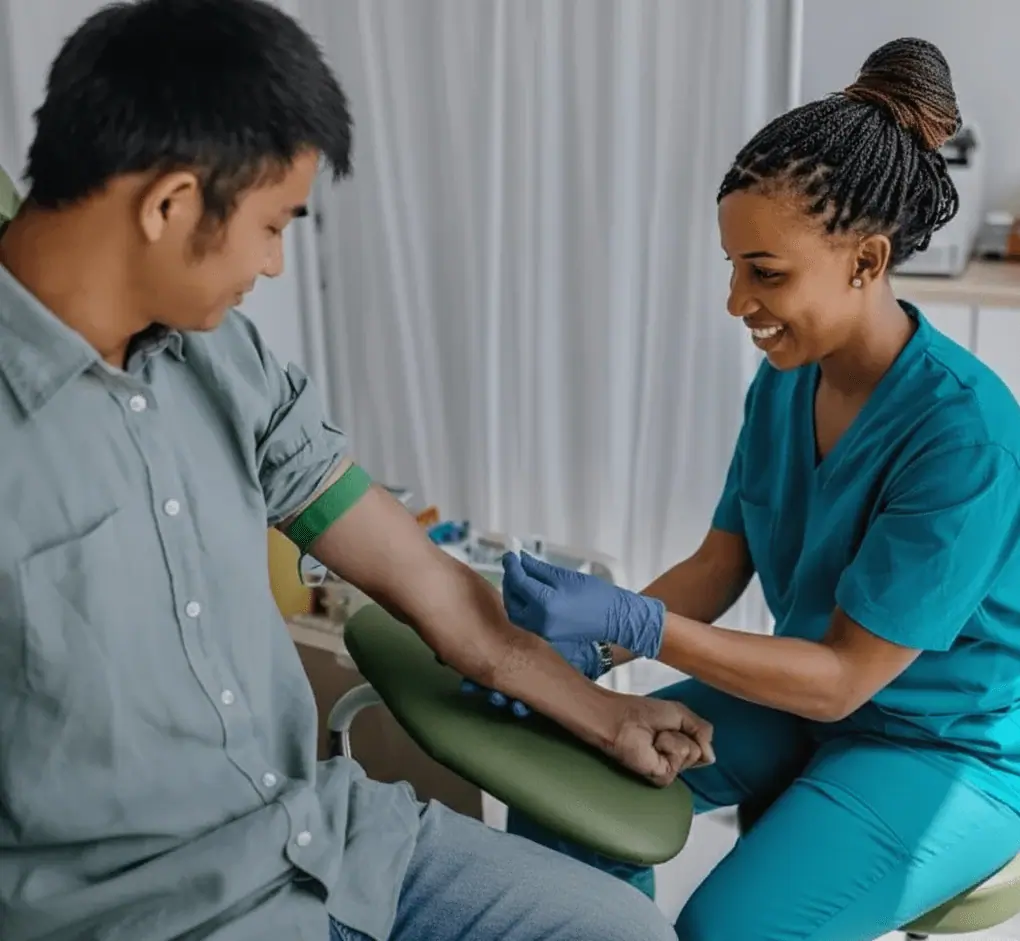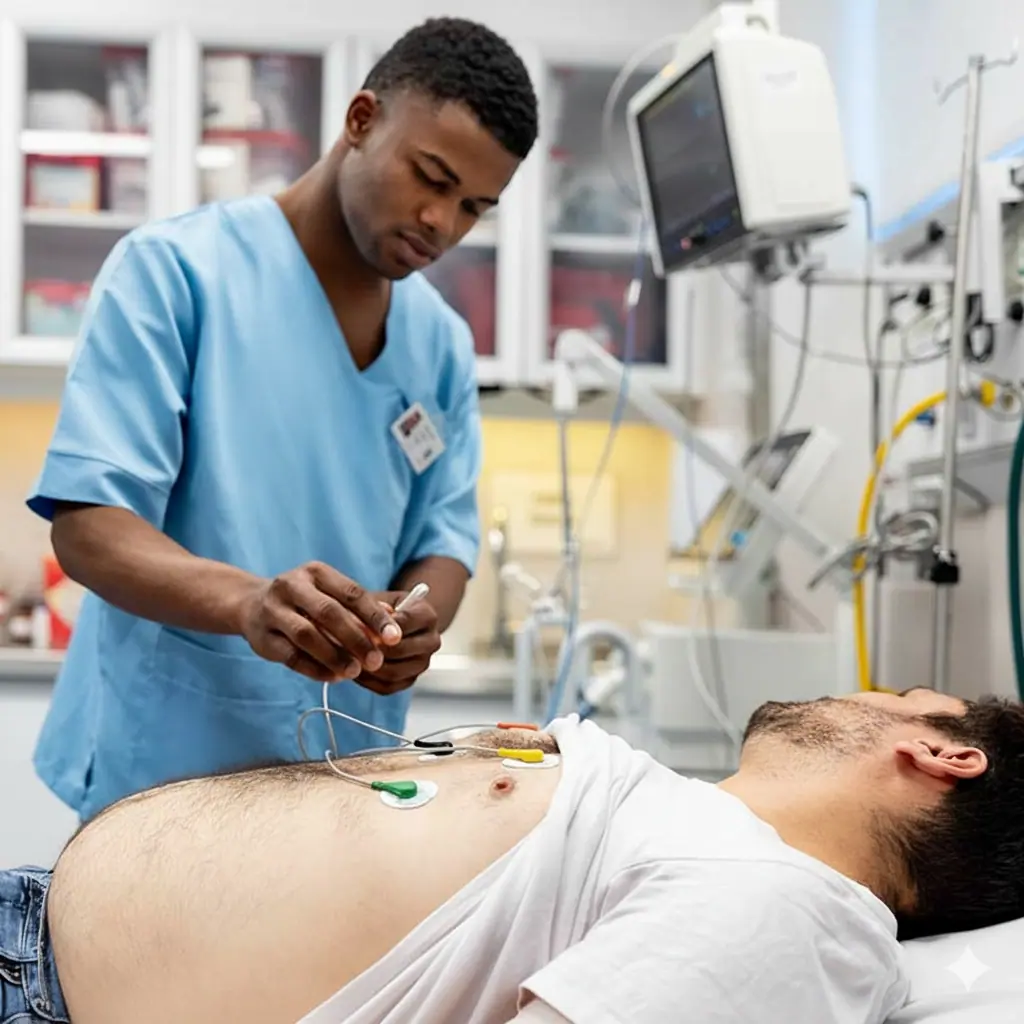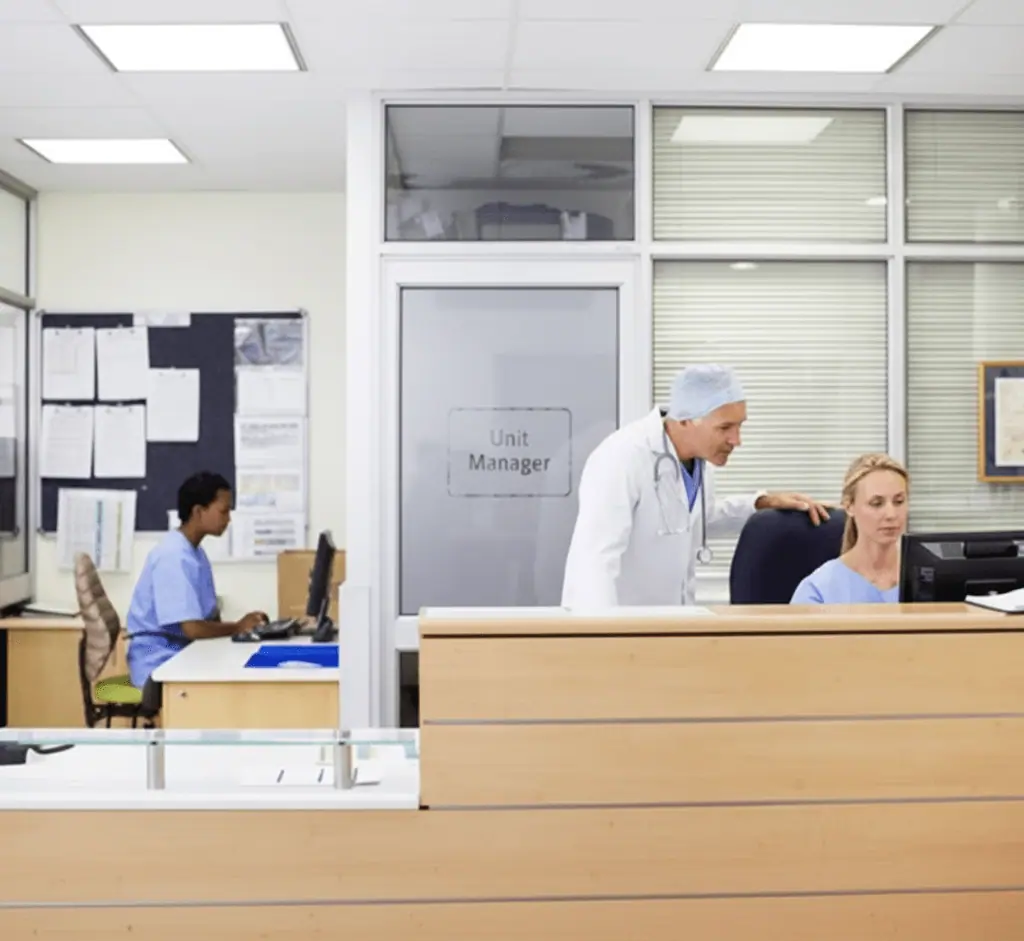Certified Nursing Assistant
Develop skills in patient care, infection control, and medical terminology. Complete the program and obtain certification, paving the way for a fulfilling career in healthcare.


Certified Nursing Assistant
Develop skills in patient care, infection control, and medical terminology. Complete the program and obtain certification, paving the way for a fulfilling career in healthcare.

Phlebotomy Technician
Learn the art of blood and specimen collection, a vital skill in healthcare. Complete the program, obtain certification, and embark on a rewarding career as a Phlebotomist.

Certified EKG Technician
Become proficient in conducting EKG testing on patients, a valuable skill in healthcare. Complete the program and began your career with certification as an EKG Technician.

Medical Assistant
Helps patients by providing clinical and business office assistance in the offices and clinics of health care providers, such as, physicians, podiatrists, chiropractors, and optometrists.

Patient Care Technician
Assist with patient care, mastering vital skills such as monitoring vital signs and understanding medical terminology. Gain practical experience and expand your knowledge.

Home Health Aide
Provide basic care and support to patients at home, developing essential patient care, nutrition, and home safety skills. Gain experience and enhance your understanding.

Medical Billing & Coding
Learn to convert patient charts into claims for reimbursement. Gain experience through instruction and practice, preparing for a career in healthcare.

CPR/ BLS
CPR training programs prepare individuals to respond to emergency situations and provide basic life support to those experiencing cardiac or respiratory arrest. Through a combination of classroom instruction and hands-on training, students learn how to recognize emergency situations, perform CPR techniques, and use automated external defibrillators (AEDs)

Physical Therapy Assistant
Under the direction and supervision of physical therapists, physical therapist assistants treat patients through exercise, massage, gait and balance training, and other therapeutic interventions.

Continuing Education Units
CEUs or CE Credits s are often required by your employer or even the government, and they are required to maintain your NHA certification. The material evolves as health care changes and helps ensure you stay informed about the constantly changing world of healthcare.

Pharmacy Technician
A Pharmacy Technician assists pharmacists in dispensing prescription medications to customers or health professionals. Their duties include measuring, mixing, counting, labeling, and recording medication dosages.

Surgical Technician
A Surgical Technician plays a critical role in the operating room, assisting surgeons and other medical professionals during surgical procedures. Their responsibilities include preparing the operating room, ensuring that equipment and surgical instruments are sterile and functioning properly, and anticipating the needs of the surgical team.

Medical Administrative Assistant
A Medical Administrative Assistant is responsible for managing the day-to-day administrative tasks in healthcare facilities such as hospitals, clinics, and medical offices. Their duties include scheduling appointments, managing patient records, handling billing and insurance claims, and providing excellent customer service to patients.

Medical Terminology
Medical Terminology refers to the specialized language used by healthcare professionals to describe the human body, its functions, diseases, procedures, and treatments. Mastery of medical terminology is essential for anyone working in healthcare, including medical coders, transcriptionists, and administrative staff, as it ensures accurate communication and documentation within the medical field.

Anatomy and Physiology
Anatomy and Physiology involves the study of the structure and function of the human body. It focuses on how the body’s organs, tissues, and systems are organized and how they work together to maintain life. Understanding anatomy and physiology is fundamental for healthcare professionals, as it provides the foundation for diagnosing and treating medical conditions.